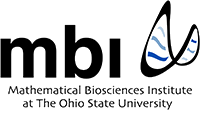Identification of control targets of Boolean molecular network models via computational algebra
Presenter
April 13, 2016
Abstract
Many problems in biomedicine and other areas of the life sciences can be characterized as control problems, with the goal of finding strategies to change a disease or otherwise undesirable state of a biological system into another, more desirable, state through an intervention, such as a drug or other therapeutic treatment. The identification of such strategies is typically based on a mathematical model of the process to be altered through targeted control inputs. This talk focuses on processes at the molecular level that determine the state of an individual cell, involving signaling or gene regulation. The mathematical model type considered is that of Boolean networks. The potential control targets can be represented by a set of nodes and edges that can be manipulated to produce a desired effect on the system. This talk presents a method for the identification of potential intervention targets in Boolean molecular network models using algebraic techniques. The approach exploits an algebraic representation of Boolean networks to encode the control candidates in the network wiring diagram as the solutions of a system of polynomials equations, and then uses computational algebra techniques to find such controllers. Additionally, a formula, based on the properties of Boolean canalization, for estimating the number of changed transitions in the state space of the system as a result of an edge deletion in the wiring diagram will be discussed. Finally, an optimal control algorithm for the identification of the best combination of control actions in a stochastic system will be presented.
